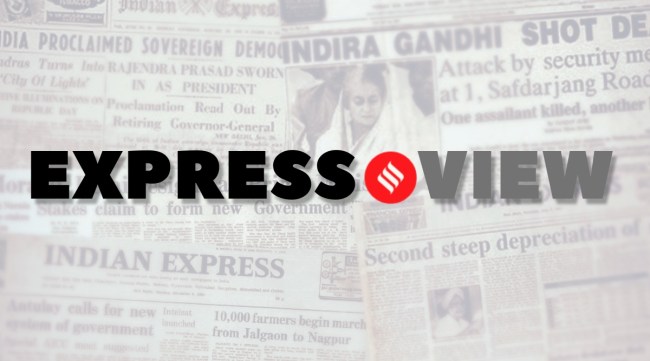Opinion Express View on Sajid Mir’s terrorist designation: The China hurdle
By blocking Sajid Mir's designation as a global terrorist, by viewing terror through a narrow geo-political lens, Beijing does itself no favours
 By blocking Mir's designation as a global terrorist, Beijing has done itself no favours. On the one hand, it wants to be acknowledged and respected as a global power; on the other, it conducts itself in the global arena more like Pakistan, a shield for terrorists.
By blocking Mir's designation as a global terrorist, Beijing has done itself no favours. On the one hand, it wants to be acknowledged and respected as a global power; on the other, it conducts itself in the global arena more like Pakistan, a shield for terrorists. China is a habitual offender when it comes to proposals to designate Pakistan-based terrorists by the UN Security Council’s sanctions committee. It puts a technical hold on the proposal, and at the next stage of consideration, blocks it altogether. This has happened on several occasions before, and it happened again on June 20 on the US proposal to designate Sajid Mir, the Lashkar-e-Toiba mastermind behind the Mumbai terrorist attacks. The proposal was sponsored by the US and India last September. China had then placed a “technical hold” on it, provided for in the procedures for the Security Council’s Da’esh and Al Qaeda Sanctions Committee. It is used when a member state wants more information on the entity sought to be sanctioned. But with plenty of information, including from Pakistan’s law enforcers, about the terrorist antecedents of Sajid Mir and his role in the 2008 strike in Mumbai, it was apparent that a hold was merely a delaying tactic, as it was in the case of the proposal on Jaish e Mohammed chief Masood Azhar for several years. Placing the proposal under “permanent objection” is the next step, and blocks the proposal for good. This is what China has deployed now. Any further efforts to designate Sajid Mir will require a new proposal.
The importance of Mir to the 26/11 attacks is well known. David Headley — the Pakistani-American Lashkar operative who lived in Mumbai to finalise targets for the 26/11 attack, and was arrested by the FBI in late 2008 in Chicago on a drug charge — had named Mir and a Major Iqbal, who he described as an ISI officer, during his testimony in a US court in 2011, as well as in his testimony to a court in Mumbai in 2016. It was his voice that guided the terrorists to their targets over the phone. Mir was also on the FBI list of most wanted terrorists — the FBI described him as the “chief planner” of the Mumbai attacks. He was indicted by a US court in 2011 for his role in the Mumbai attacks along with Headley, his accomplice in the US, and Tahawwur Rana, and others including Major Iqbal.
By blocking Mir’s designation as a global terrorist, Beijing has done itself no favours. On the one hand, it wants to be acknowledged and respected as a global power; on the other, it conducts itself in the global arena more like Pakistan, a shield for terrorists. In 2019, it was on account of an image problem that China was forced into lifting its hold on Masood Azhar weeks after the Pulwama attack, allowing his designation after nearly a decade of attempts. The block on Sajid Mir’s designation came on a day that Prime Minister Narendra Modi landed in New York. But it may have nothing to do with Delhi’s heightened friendship with the US, or the Indo-Pacific, or the Quad because China has used its veto against sanctioning India-focused terrorists since 2006, while signing off on those it sees as a threat to its own interests such as the East Turkistan Islamic Movement and the Tehreek-e-Taliban Pakistan. The unfortunate message from its latest move is that Beijing views terrorism directed against India from the soil of its friend and ally Pakistan through a narrow lens of regional geopolitics.




